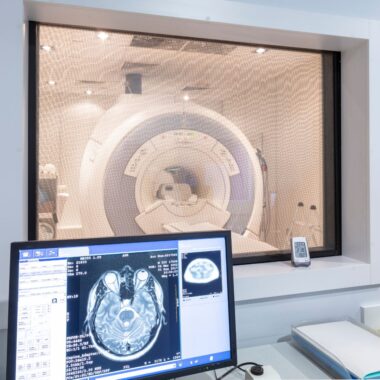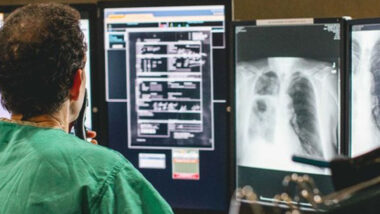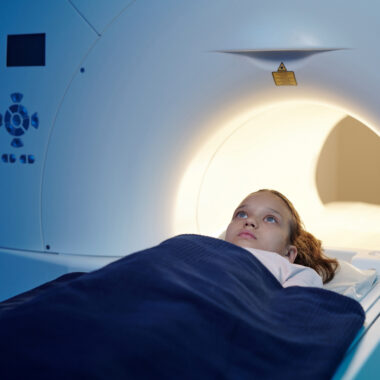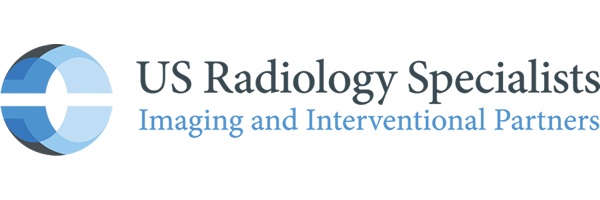Keeping your heart healthy is one of the most important things you can do for your overall health. That’s why it’s important to seek medical care if you experience any symptoms of heart problems. Often, your doctor will use noninvasive imaging solutions, such as coronary computed tomography angiography (CCTA), to help diagnose the cause of your symptoms. This heart imaging test can show whether there is plaque buildup in the coronary arteries and help your doctor diagnose heart conditions.
When Is Imaging Needed for Heart Symptoms?
Nearly half of all people in the United States have at least one of three known risk factors for heart disease: high blood pressure, high blood cholesterol and smoking. Other risk factors include:
- Diabetes
- Excessive use of alcohol
- Lack of exercise
- Obesity
- Unhealthy eating habits
- Family history
Having one or more of these risk factors can put you at a higher risk of developing different forms of heart disease. When plaque builds up in the coronary arteries, which supply blood to the heart, it can cause coronary artery disease (CAD). Sometimes, the first sign of the disease is a heart attack. Other symptoms of CAD include:
- Chest pain or discomfort
- Cold sweats
- Nausea
- Pain in the arms or shoulders
- Shortness of breath
- Weakness
CAD can also lead to heart failure, a condition in which the heart no longer pumps blood as effectively as it should.
If you have undiagnosed chest pain, don’t wait to see your doctor. The sooner the cause of your discomfort is diagnosed, the sooner you can begin treatment if necessary.
How Does CCTA Work?
Your doctor might order a CCTA exam to help find the cause of your chest pain or other symptoms. This exam utilizes CT technology, which creates detailed images of structures inside the body. CCTA allows your doctor to see the blood flow in the coronary arteries by generating 3D images of hard and soft plaque.
During the exam, you will lie on a scanning table, and contrast material will be administered through an IV. The table will slide into the CT scanner. You might also be given a beta blocker medication to slow your heart rate to improve image clarity, as well as nitroglycerin to dilate coronary arteries and create a clearer picture. You might be asked to put your arms over your head or hold your breath.
The scan typically takes about 15 minutes, but if you need to take a beta blocker to reduce your heart rate, you may have to wait for it to take effect. You’ll also need to stay an additional 15 to 30 minutes after the exam for observation.
Is CCTA Right for You?
Physicians use CCTA to help diagnose the extent and severity of CAD, both obstructive (50% or more of the coronary arteries are narrowed) and nonobstructive (less than 50% of the arteries are narrowed). The exam can also be used to evaluate patients with acute or stable chest pain at intermediate to high risk of developing heart disease, as well as to determine heart attack risk in patients at high risk, even if they don’t have symptoms.
If you are experiencing symptoms or have risk factors for CAD, speak with your primary physician or Cardiologist to find out whether CCTA is an option for you.
Read More: CT Scans: What to Know
What Are the Benefits of CCTA?
For many patients, CCTA is an easier, less stressful imaging solution than other types of exams, such as cardiac stress tests or other more invasive exams. CCTA is a quick, noninvasive option that can be especially useful for high-risk patients who are unable to undergo other types of testing.
Additional benefits of CCTA include:
- Fast, reliable results
- Provides detailed views of many different tissues, helping your doctor make an accurate diagnosis
At Charlotte Radiology, our imaging experts now offer high-quality, reliable cardiac (CCTA) imaging at our CIS Huntersville location, and our subspecialized radiologists provide accurate results you can trust.



